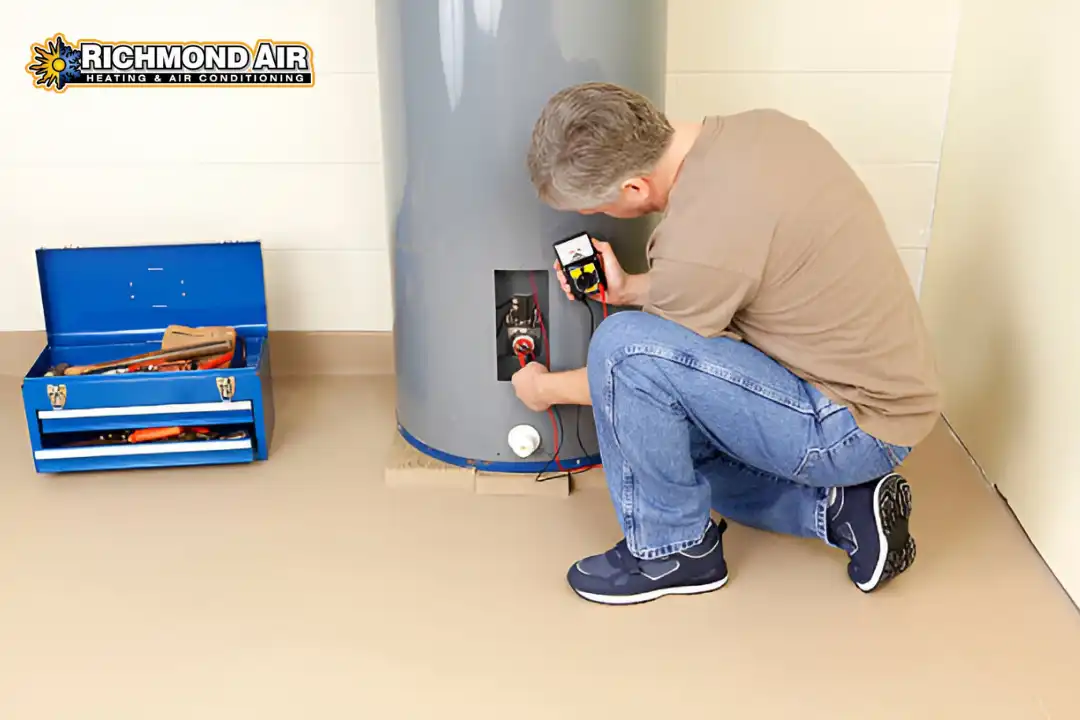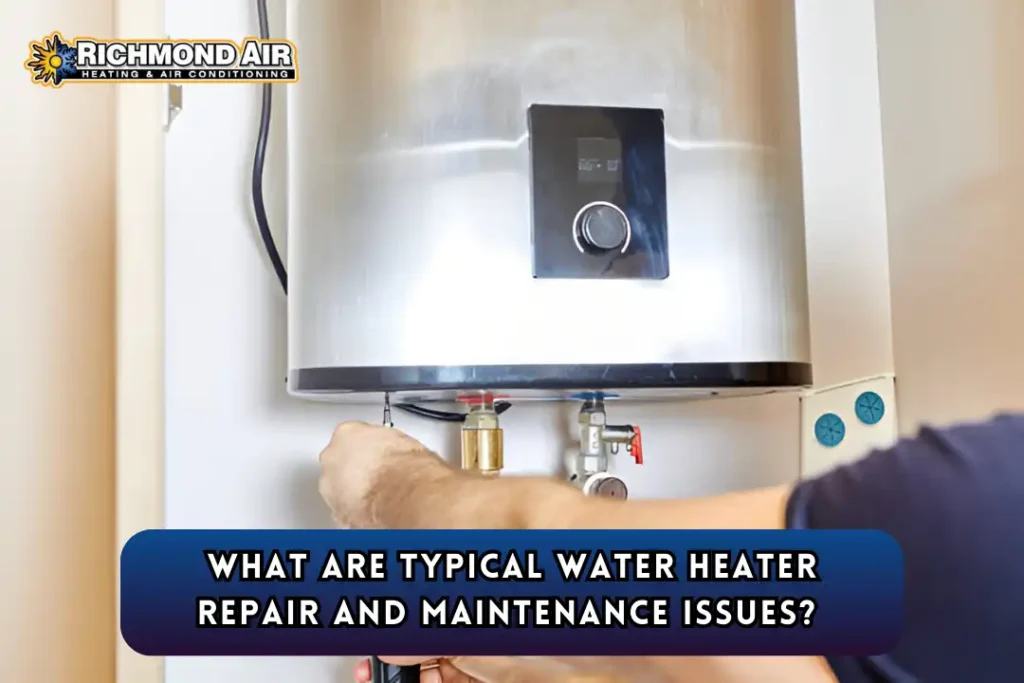Ah, the water heater, a humble, unassuming appliance that quietly works behind the scenes to ensure your showers are warm, your dishes are clean, and your laundry is fresh. But when it decides to throw a tantrum, it can turn your life into a cold, soggy mess. So, what are typical water heater repair and maintenance issues, and how can you keep this unsung hero of modern comfort in tip-top shape? Let’s get in with a splash of wit and a bucket of practical advice.
5 Typical Water Heater Repair and Maintenance Issues?
1. No Hot Water
Few things are as jarring as stepping into a shower expecting a warm embrace, only to be greeted by an icy slap. If your water heater isn’t doing its one job—heating water—it’s time to investigate.
Possible Causes:
For electric models, a tripped circuit breaker or a faulty heating element is often to blame.
For gas models, the pilot light might be out, or the thermocouple could be malfunctioning.
Solution:
Check your circuit breaker and reset it if necessary.
For gas heaters, relight the pilot light (instructions are usually on the unit). If it doesn’t stay lit, the thermocouple may need replacing.
2. Water Temperature Issues
Is your water too hot, too cold, or doing its best impression of a rollercoaster ride? This is a common issue that can leave you scratching your head—and your thermostat.
Possible Causes:
A faulty thermostat or heating element.
Sediment buildup in the tank, which can insulate the water from the heating element.
Solution:
Adjust the thermostat to 120°F, the Goldilocks zone of water temperatures. ● Flush the tank to remove sediment. This involves attaching a hose to the drain valve and letting the water flow out until it runs clear.
3. Leaking Water Heater
A puddle around your water heater is like a crying toddler—it’s a clear sign something’s wrong.
Possible Causes:
A loose drain valve.
Corrosion in the tank.
Excessive pressure causing the temperature and pressure (T&P) relief valve to open.
Solution:
Tighten the drain valve with a wrench.
If the tank is corroded, it’s time to bid it farewell and invest in a new one. ● Check your home’s water pressure and ensure it’s within the recommended range (40-60 psi).
4. Strange Noises
If your water heater is making popping, rumbling, or banging sounds, don’t worry—it’s not haunted. It’s just trying to tell you something.
Possible Causes:
Sediment buildup at the bottom of the tank.
Expanding and contracting metal parts.
Solution:
Flush the tank to remove sediment.
If the noise persists, call a professional to inspect the unit.
5. Discolored or Smelly Water
If your hot water looks like it’s auditioning for a horror movie or smells like rotten eggs, you’ve got a problem.
Possible Causes:
A corroded anode rod.
Bacteria in the tank.
Solution:
Replace the anode rod, which is a sacrificial metal rod designed to prevent tank corrosion.
- Flush the tank and sanitize it with a solution of water and hydrogen peroxide.
Why Regular Maintenance Matters

Water heaters, like your car or your favorite pair of sneakers, need regular TLC to perform their best. Neglecting maintenance can lead to higher energy bills, reduced efficiency, and a shorter lifespan. Here’s how to keep your water heater happy:
- Flush the Tank Annually: This prevents sediment buildup, which can damage the heating element and reduce efficiency.
- Inspect the Anode Rod: Check it every 2-3 years and replace it if it’s less than ½ inch thick.
- Test the T&P Valve: Lift the lever to ensure water flows out and stops when released. If it doesn’t, replace the valve.
Fun Facts About Water Heaters
- The First Water Heater Was Invented in 1868: Benjamin Waddy Maughan, a painter from London, created the first instantaneous water heater, which he called the “geyser.” However, it lacked proper ventilation, making it a bit of a safety hazard (source).
- Water Heaters Account for 25% of Home Energy Use: That’s right—your water heater is one of the biggest energy consumers in your home. Switching to an energy-efficient model can save you a bundle (source).
My Personal Experience With Water Heater Woes
A few years ago, I woke up to a cold shower on a winter morning. After some detective work (and a lot of grumbling), I discovered that the pilot light on my gas water heater had gone out. Relighting it was easy enough, but the experience taught me the importance of regular maintenance. Since then, I’ve made it a point to flush the tank and
check the anode rod every year. Trust me, a little effort goes a long way in avoiding those icy surprises.
The Importance of Choosing the Right Water Heater
Selecting the right water heater for your home is more important than you might think. A poorly sized or inefficient model can lead to higher energy bills, insufficient hot water, and frequent repairs. For instance, a tankless water heater is ideal for smaller households due to its energy efficiency and on-demand heating, while a traditional tank model may better suit larger families with higher water usage. Additionally, considering energy-efficient options like solar or heat pump water heaters can significantly reduce your carbon footprint. Investing time in research now can save you money and frustration in the long run.
Final Thoughts
Water heaters are the unsung heroes of our homes, quietly working to make our lives more comfortable. By understanding what are typical water heater repair and maintenance issues, you can take proactive steps to keep your unit running smoothly. Regular maintenance, like flushing the tank and inspecting the anode rod, can save you from costly repairs and extend the life of your water heater. And when problems do arise, knowing how to troubleshoot them can save you time, money, and frustration.
Don’t let a faulty water heater ruin your day or your shower. Schedule a maintenance check today if you’re experiencing any of the abovementioned issues. For more tips and expert advice, explore our website. A little preventative care now can save you from major headaches later. Let’s keep your water heater and your mornings running smoothly.
FAQs
How often should I flush my water heater?
Flushing your water heater once a year helps prevent sediment buildup. This ensures better efficiency and longer lifespan. Regular maintenance keeps your heater running smoothly.
What’s the ideal temperature setting for a water heater?
Set your water heater to 120°F for the best balance of safety and energy efficiency. It prevents bacteria growth without wasting energy. This temperature also reduces the risk of scalding.
How do I know if my anode rod needs replacing?
Check the anode rod every 2-3 years for wear. If it’s thinner than ½ inch or coated in calcium, it’s time to replace it. A worn rod can lead to tank corrosion.
Can I repair a leaking water heater myself?
If the leak is from a loose valve, you may tighten it yourself. However, if the tank is leaking, it’s typically beyond repair. In such cases, you’ll need to replace the water heater.
When should I replace my water heater?
Replace your water heater if it’s over 10 years old and frequently requires repairs. If it no longer meets your household’s demands, it’s time for a replacement. An aging unit can become inefficient and unreliable.


